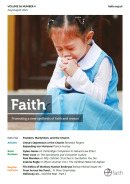Book Review: Cambridge Companion to Natural Law Ethics
Useful Natural Law textbook
Review by Dylan James
This is not a Catholic textbook, but, as one might expect, the Cambridge Companion to Natural Law Ethics brings together contributions from a number of well-established and prominent Catholic scholars, including Edward Feser, Steven Jensen, Patrick Lee and Christopher Wolfe. The collection includes a description of Natural Law theory within Judaism, Islam, and Protestant Christianity, but given that this field is generally regarded as Catholic territory, it’s unsurprising that we find Catholic authors contributing. That said, its coverage of the field doesn’t necessarily cover what you might hope for in a Catholic textbook on the subject. I shall focus my review on the Companion’s treatment of the ‘New Natural Law Theory’.
New Natural Law Theory
Ever since Germain Grisez, John Finnis, Joseph Boyle et al started defending Humanae Vitae using their ‘New Natural Law Theory’ (NNL), the debate about their school of thought has been one of the defining issues in Natural Law writings. Is it an authentic presentation of St Thomas’ thought? Can, or cannot, you derive an ‘ought’ from an ‘is’? etc. It is thus to be expected that the Companion offers a summary and defence of the NNL, as Patrick Lee does ably. You would then expect a ‘Traditional Thomist’ (as they are usually called) to offer a presentation of the alternative. Sadly, however, the collection only offers this in what might be considered an implicit or indirect manner. I would have to consider this a significant omission in the collection. In addition, given that so much Catholic literature on Natural Law has focused on issues of sexual morality, it is somewhat curious that this is not touched on in the articles.
How can we know moral truths?
The heart of the NNL-‘Traditional Thomist’ debate is one of epistemology: How do we know the Natural Law? Both sides of the debate agree we can know moral truths, but the two sides disagree as to how we can come to know these truths. ‘Traditional Thomists’ hold that “the basic moral criterion is human nature itself” (p.73): we know that good acts are good because we evaluate them as fulfilling the ends built into human nature. In manufacturing, a good watch is evaluated by whether it fulfils the telos of a watch: telling the time. In morality, a good act of eating is evaluated by whether is fulfils the inbuilt telos of eating: nourishment (with various secondary ends like social intercourse over meals). In contrast, we judge gluttonous eating to be sinful because it thwarts the telos of eating. We know the ‘ought’ by knowing the ‘is’: We know moral norms by knowing human nature with its various inbuilt ends and purposes. Such a teleological view of human nature will be familiar to those acquainted with the vision of the Faith magazine: evolution forms nature purposefully and we can know those purposes by knowing nature.
Basic human goods
The NNL approach, in contrast, argues that while morality is grounded in nature metaphysically our knowledge of morality is not dependent epistemologically on our knowledge of nature. “Knowledge of the natural law does not … begin with theoretical knowledge of human nature; rather, practical reason begins with its own, self-evident practical principles” (p.73). There are certain “basic human goods” that are self-evidently recognised and the task of moral analysis is to discern how to pursue these in a manner that is “open” to all the goods and exclusive of none. The eight goods are “incommensurable” (p.82) and cannot be ranked or pitted against each other. This, Lee argues, creates a system that defends “moral absolutes” (p.86). Lee’s articulation and defence of the NNL position is clear, well-defended, and as good as any exclusively-Catholic text- book might hope for.
Virtue
The less satisfying coverage in the Companion is its presentation of the non-NNL approach. Given that this is the approach more likely to interest Faith magazine readers, and given the wealth of scholarship by ‘Traditional Thomists’ in recent years, this might be considered somewhat disappointing. This said, there is an indirect comparison in that the Companion groups Lee’s article with one by Jennifer Frey on ‘Neo-Aristotelian Ethical Naturalism’. Frey draws on Elizabeth Anscombe and Philippa Foot to summarise the resurgence of the concept of ‘virtue’ as the paradigm for moral analysis within certain secular academic circles. She writes, “Human beings… given the kind of kind they are, need and therefore ought to develop… virtues” (p.93), i.e. the ‘ought’ of behaviour is derived from the ‘kind’ of beings human are, their ‘is’. While not referring to the NNL per se, Frey’s article thus provides an epistemological foundation at variance with the NNL claim.
Human foundational tendencies
Probably the best two articles in the Companion are those by Steven Jensen and Edward Feser. Jensen, a well published Thomistic scholar, focuses his analysis on St Thomas’ account of the ‘inclinations’. These ‘inclinations’ are those foundational tendencies of the human person that define us, something much more foundational than conscious ‘desires’. He uses this analysis to elaborate St Thomas’ understanding of a number of points, including ‘obligation’. The ‘inclinations’ direct us to specific ends that define us. For example, at our most foundational level, along with plants and animals, a man is inclined to self-preservation – he possesses this inclination without choosing to possess it; it is simply part of what he is. These ends provide reference points to evaluate action, to ground our sense of ‘obligation’. While not referring to the is- ought debate, Jensen thus outlines a ‘Traditional Thomist’ response to the NNL.
Metaphysics
Edward Feser, one of the foremost scholars of our day, contributes an article that offers a detailed defence of the underlying metaphysics. He seeks to defend St Thomas’ account of Natural Law by defending “a metaphysics of Aristotelian essentialism and teleology” (p.276), showing in detail how they are connected. Drawing in turn on the philosophies of physics, chemistry, and biology, and quoting numerous recent authors in these fields, he argues convincingly that evolution actually supports rather than undermines the notion that there are distinct species and distinct ‘essences’. Thus, there are ‘natures’ and we can thus speak of a ‘Natural Law’. While only briefly referring to Grisez, this article is another implicit defence of the ‘Traditional Thomistic’ position on Natural Law.
Who then should buy this book? Like any Cambridge Companion, it’s a technical work and not for the casual reader. In addition, as noted, much of the focus is not specifically Catholic. Nonetheless, it offers much useful material.
Fr. Dylan James is a professor of Moral Theology at the Pontifical College Josephinum in Columbus, Ohio.






